review
The Best AI Literature Review Tools for Automating Your Research

AI has truly taken academia by storm, transforming how researchers approach tasks like conducting literature reviews.
With AI-powered tools, researchers can now automate various aspects of the literature review process—making it faster, more efficient, and more insightful.
In this article, we’ll explore the best AI tools for literature review automation.
The Best AI Literature Review Tools for Automating Your Research
Whether you’re looking to speed up your workflow, find research gaps, or generate well-structured outlines, these AI-powered platforms can help you achieve your goals with ease.
1. Scispace: Streamlining Literature Searches
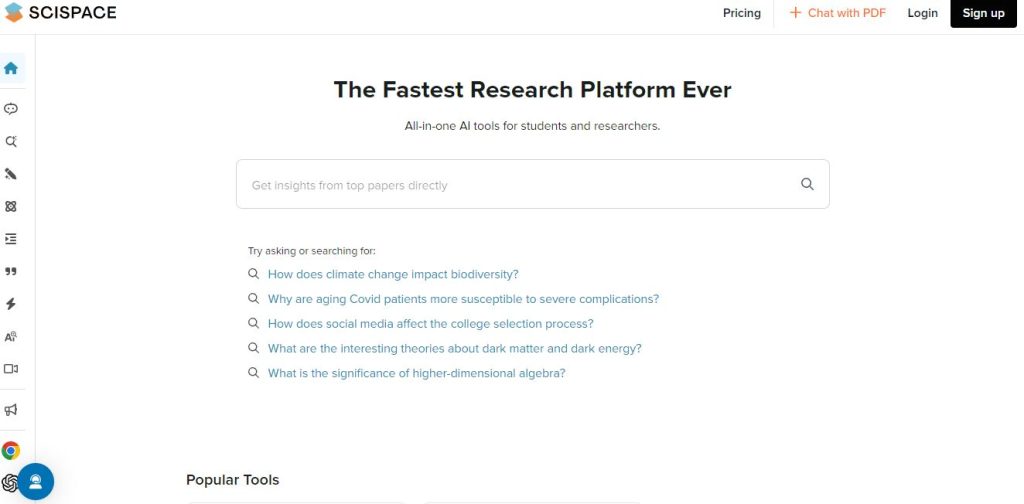
Scispace is a fantastic AI tool designed to help researchers find and analyze relevant literature quickly.
Unlike traditional search engines, Scispace provides a synthesis of top academic papers based on your research question.
It offers an intuitive interface where you can sort papers by methods, findings, or limitations, and even offers bullet-point summaries.
With this tool, you’ll speed up the process of reviewing literature while focusing on key aspects of your research.
One unique feature of Scispace is its ability to chat with papers and documents.
You can ask AI questions about specific papers or entire collections, making it easier to synthesize insights and uncover gaps in the research.
2. Avidnote: Upload, Analyze, and Summarize PDFs
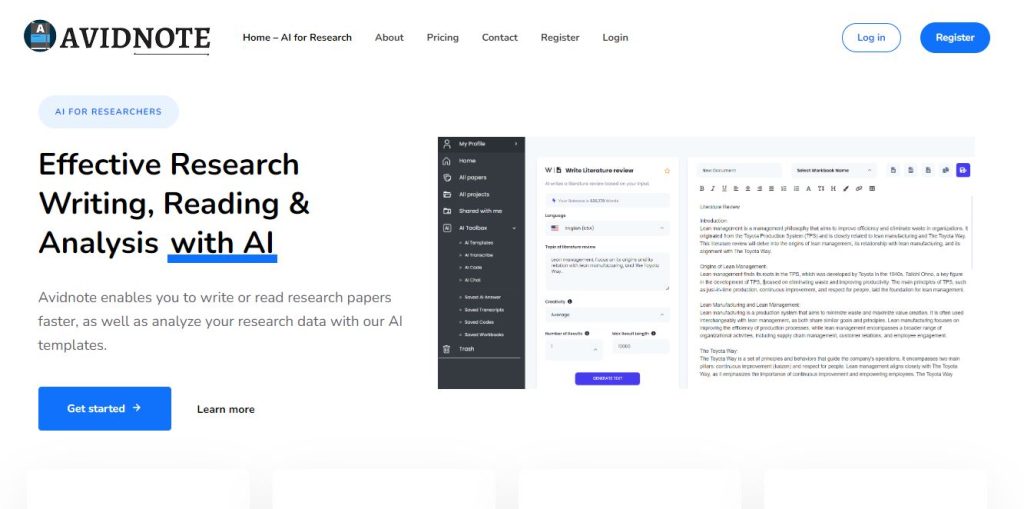
If you’re looking to automate your literature review with uploaded PDFs, Avidnote is a must-try.
Unlike search-based AI tools, Avidnote allows you to upload academic papers from your library and ask specific questions about the content.
It reads and analyzes PDFs directly, ensuring high accuracy when summarizing methodologies, results, or limitations.
Avidnote also helps researchers structure their literature reviews by providing outlines and detailed AI-generated summaries.
With the ability to interact with specific sections of papers, such as figures or tables, Avidnote enhances your ability to digest information quickly and accurately.
3. Consensus: AI-Powered Academic Search Engine
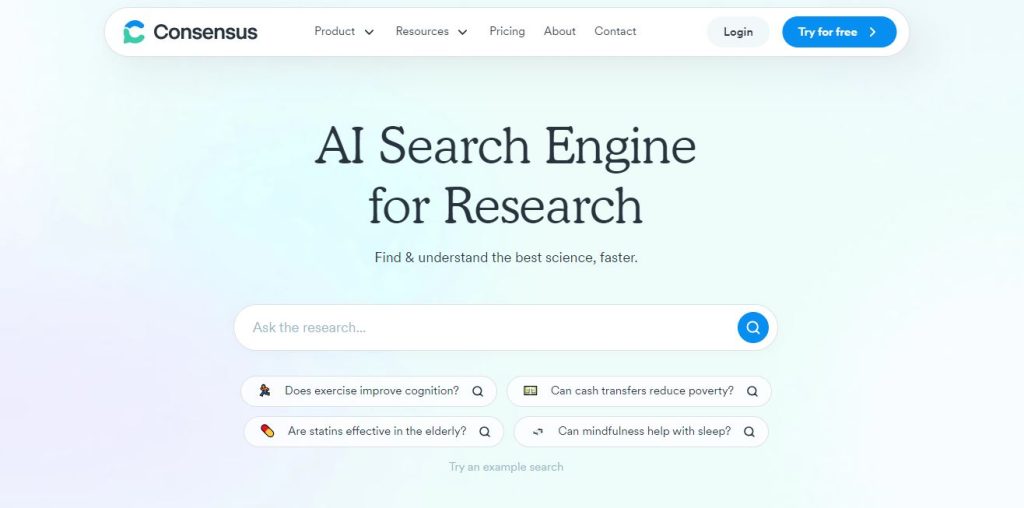
Consensus is an AI academic search engine that’s designed to synthesize literature and provide overviews of research findings.
It is especially useful for identifying whether there is a consensus or disagreement on specific research questions.
With features like the “consensus meter,” it helps you quickly determine if the literature leans toward agreement or split opinions on certain topics.
Consensus also presents studies in bullet points and organizes papers by relevance and citations, allowing you to focus on high-quality, influential research.
This tool is excellent for researchers who need a high-level view of a topic before diving into the details.
4. Jenni AI: AI Writing Partner for Literature Review
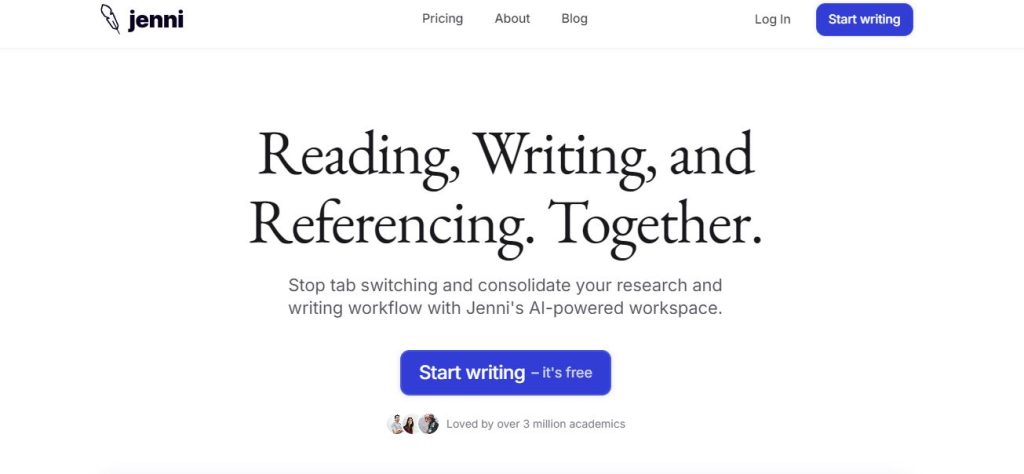
Jenni AI is more focused on the writing aspect of literature reviews.
While it doesn’t search for literature, it’s an excellent tool for generating outlines, drafting sections, and organizing your literature review.
By interacting with AI chat, you can request Jenni AI to help structure a chapter, suggest content, or even create a draft based on your input.
Remember, the text generated by Jenni AI needs to be carefully edited and rewritten in your own words to avoid issues of plagiarism.
It serves as a great brainstorming partner to get your thoughts flowing more efficiently.
5. Research Rabbit: Visualizing Paper Connections
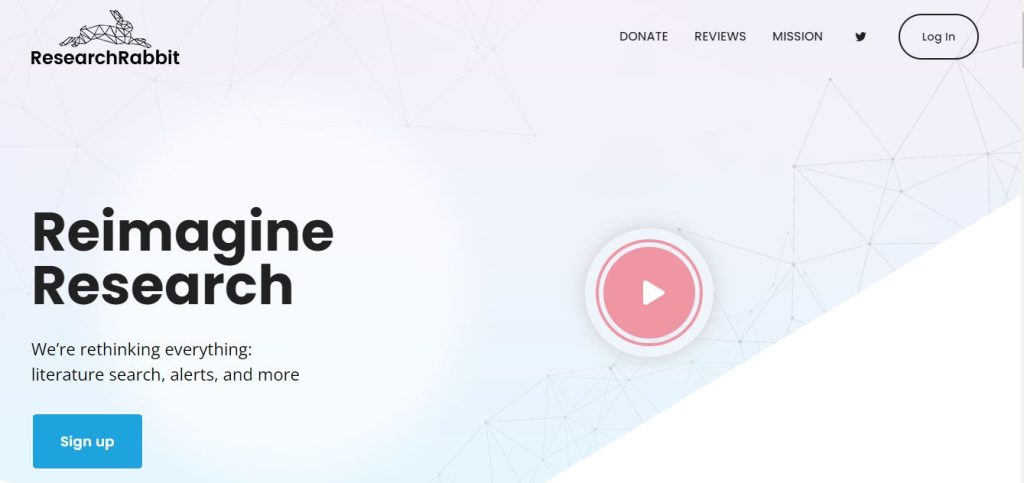
Research Rabbit is a unique tool that visualizes the relationships between academic papers, creating a dynamic map of research connections.
This AI tool allows you to sync your Zotero library or upload papers and then visualize how different works are interrelated.
It’s especially useful for identifying trends and finding influential authors or seminal works in your field of study.
The visual approach makes it easier to spot research gaps, see how different papers build on one another, and organize your literature review more coherently.
It’s a great resource for those who prefer a more interactive and graphical approach to understanding academic connections.
Why AI is a Game-Changer for Literature Reviews
AI tools offer numerous benefits to researchers:
- Faster Literature Searches: AI tools help you quickly find relevant papers, cutting down on the hours spent combing through databases.
- Research Gap Identification: By summarizing the latest research, AI tools can highlight areas that remain unexplored.
- Enhanced Understanding: AI-generated summaries and insights make it easier to digest complex studies.
- Better Organization: Many of these tools provide automated ways to organize your literature, allowing for structured and efficient reviews.
Final Thoughts
With AI tools like Scispace, Avidnote, Consensus, Jenni AI, and Research Rabbit, literature review automation has never been easier.
These tools will not only save you time but also enhance the quality of your reviews by offering deeper insights and better organization.
As AI continues to evolve, embracing these tools will become a crucial part of the academic research process.
If you want to stay ahead in academia, now is the time to explore and integrate AI into your research workflow.
By using these AI-powered platforms, you can streamline your literature review process and uncover valuable insights faster than ever before.
